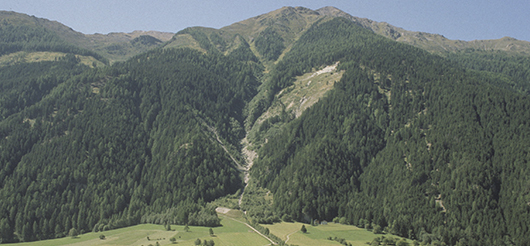The objective of this publication is to present the policy and management approach of each member country on its protective forests. The goal of the member countries is to increase the resilience of mountain forests and ensure the sustainability of their protective functions for society. Each country report covers the...
This study, initiated by FAO, meets the need to document and establish data on environmentally friendly forest engineering practices. The marked superiority of sophisticated construction equipment and advanced techniques in forest road construction should encourage the adoption of such practices to provide access to the forests by roads in mountainous...
This case study was conducted in mixed mountain forests of the Bavarian Alps. They offer a number of services such as: protection against hazards of the mountainous areas as snow, windstorm, and insects, protection of steep slopes against landslides, avalanches and erosion, high production of timber on many sites, attractive...
Forests play a key role in mountain areas, providing goods and services essential to the livelihood of both highland and lowland communities. Freshwater streaming down from mountains is accessible to more than half of the world's population and available for the most varied needs, such as drinking, cooking and washing,...
Because of the important role of the Kilum-Ijim Forest in local economy and culture, forest conservation, to be successful, must involve local people and address their needs. Recognising this, MINEF and the project agreed to shelf the original plans to gazette the whole forest and work towards the establishment of...
This study is one in a series of case studies being undertaken by the FAO Forest Harvesting and Transport Branch as part of its efforts to promote environmentally sound and sustainable forest practices in both natural and plantation forests. The main objective of these case studies is to document successful...


